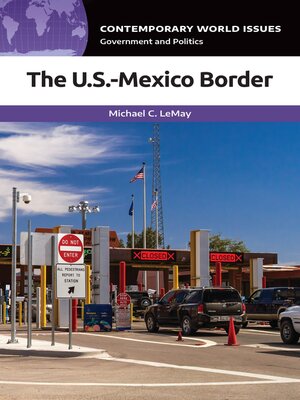
Sign up to save your library
With an OverDrive account, you can save your favorite libraries for at-a-glance information about availability. Find out more about OverDrive accounts.
Find this title in Libby, the library reading app by OverDrive.



Search for a digital library with this title
Title found at these libraries:
| Library Name | Distance |
|---|---|
| Loading... |
This book offers answers to essential questions about the border between the United States and Mexico and connected issues that are accessible to readers interested in immigration, border security, and international relations.
Readers will learn about the political, social, and economic contexts in which the border came to exist; the problems, controversies, and proposed solutions surrounding it; the major organizations and people who, as stakeholders in border politics, drive the agenda on the issue. The book presents data and documents on the topic, giving readers the ability to analyze the facts for themselves.
Additional resources that the reader may wish to consult, such as books, journal articles, and films are provided. A detailed chronology of important events follows, and the book closes with a useful glossary and a comprehensive subject index.
Readers will learn about the political, social, and economic contexts in which the border came to exist; the problems, controversies, and proposed solutions surrounding it; the major organizations and people who, as stakeholders in border politics, drive the agenda on the issue. The book presents data and documents on the topic, giving readers the ability to analyze the facts for themselves.
Additional resources that the reader may wish to consult, such as books, journal articles, and films are provided. A detailed chronology of important events follows, and the book closes with a useful glossary and a comprehensive subject index.







